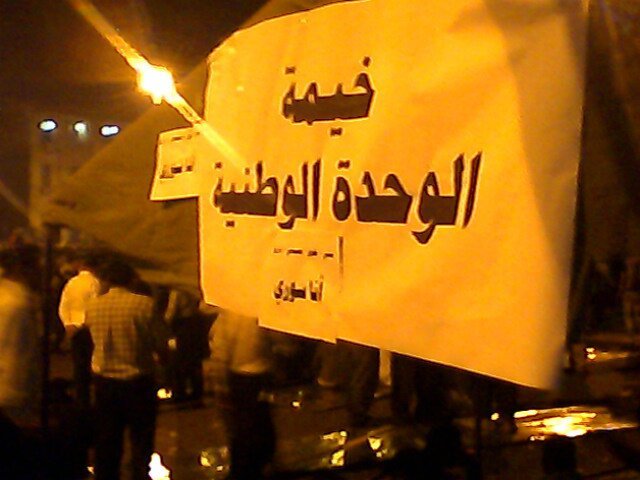A beacon for Syria


Activist tells her story of assault by security forces on demonstration in Homs
Milia stayed out all night protesting. That night, people were chanting in the new clock square, the one that protesters had dubbed “The liberation square of the governorate of Homs”. Milia’s house is on Hamidia Street, right behind the Khaled Ben Walid mosque. But this Christian neighborhood also harbours one of the oldest churches on earth, the Church of the Holy Girdle and Milia lives right next to this landmark, visiting it every Sunday to receive the archbishop’s blessings.
Homs has suffered for decades from constantly changing demographics; other religious communities have been implanted in it, not just for economic purposes but also for settlement.
On that night, Milia was with some of her friends who were setting up tents and mounting electricity cables to light up the square so that it would become a beacon for all Syria. They were also writing slogans against the regime, such as “Strike, strike, until the regime falls”. Milia thought that this kind of slogan was important “because we grew up in a country that adopts slogans before it undertakes actions”.
That night, the work of these young men and women was organised, even though their resources were limited. The news they heard and the fact that most of them came from the areas where tensions were high gave them the needed momentum.
Deraa was dying, Bayda – close to the city of Banias – was calling for help, Douma was on the verge of destruction, whilst other regions urgently needed some assistance.
Their strike might not have had much of an impact, but the purpose was to send a message to all the Syrian people and show them that the people are working hand in hand, that they are not divided or corrupted.
As soon as they starting calling for demonstration, scores of people came uninvited, everybody was participating, everybody was praying, Muslims and Christians united for, everyone was praising God. Then they all started chanting, “With our blood, with our soul we sacrifice ourselves for Deraa; with our blood, with our soul we sacrifice ourselves for Banias; with our blood, with our soul we sacrifice ourselves for Douma.”
A lot of young men and women were crying because blood was still running on many streets in Syria. Syrian lives were now cheaper than a bullet. Then everyone sat down to listen to the preachers who came from the nearby areas, everybody was with the revolution and with the true demands of the Syrian people.
“We heard warnings from the authorities asking us to evacuate the liberation square,” said Milia. “We then heard another warning, and then gunshots. The first time, the men protected us with their bodies; they prevented anyone from approaching the women.”
“As women, we were not afraid of bullets as much as we were afraid of the brutal assaults of officers like the one that were carried out on some of the demonstrators before the protest,” she continued.” After midnight, the security forces breached the square and fired at will to separate groups, and then everyone fled.”
It was not immediately known who died as a martyr, or who was arrested. What we do know is that the ministry of interior issued a press release the following day claiming that Salafist groups occupied the new clock square in Homs and were preparing to declare the city a Salafist emirate, and that security forces dissuaded them with some of the soldiers falling as martyrs during the operation.
“I wonder how this sort of press release can be issued,” laughs Milia. “As if I were a Christian Salafist and some of the officers were shot even though none of us were carrying weapons, or even knifes.”
